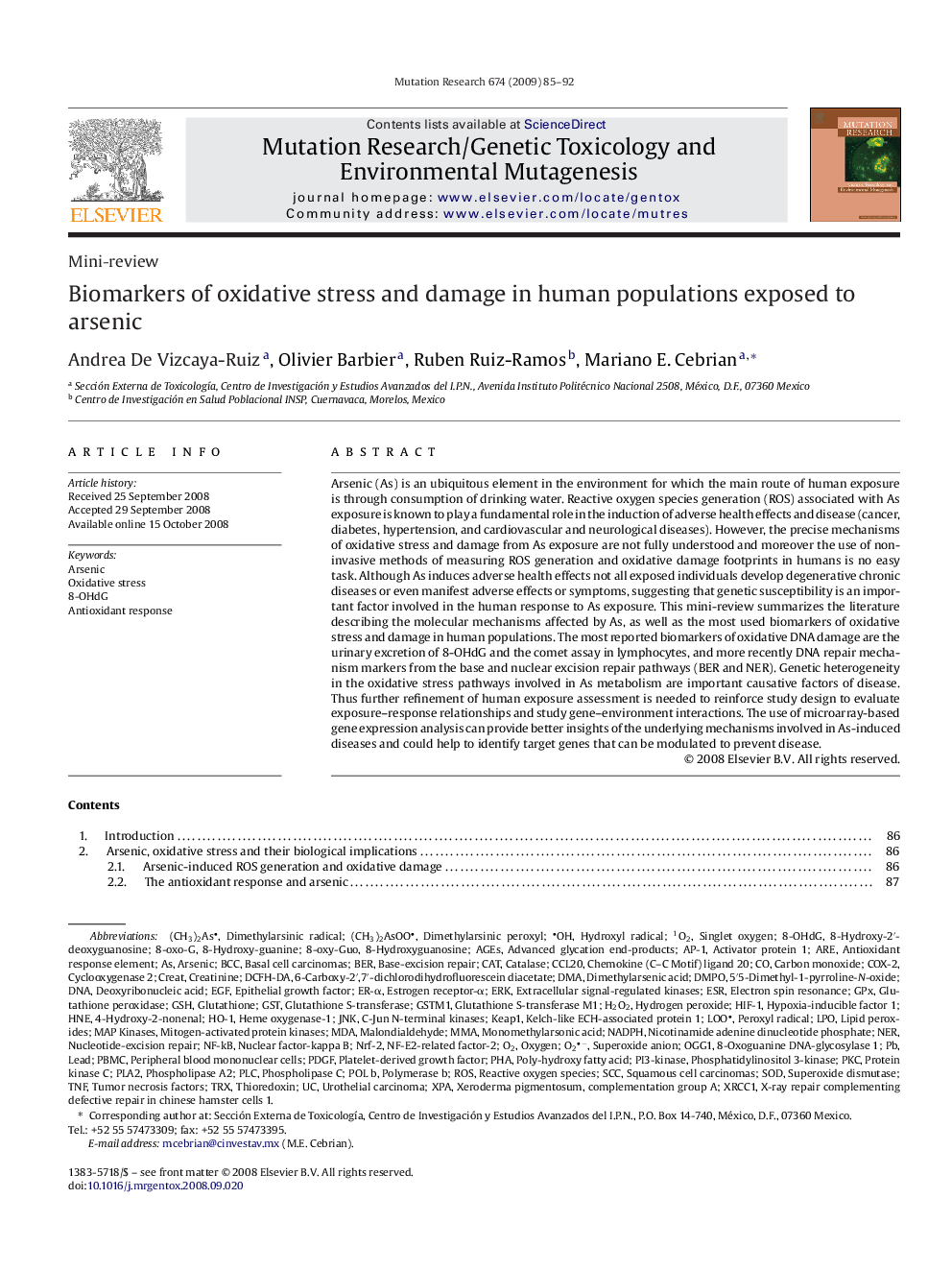| Article ID | Journal | Published Year | Pages | File Type |
|---|---|---|---|---|
| 2148645 | Mutation Research/Genetic Toxicology and Environmental Mutagenesis | 2009 | 8 Pages |
Arsenic (As) is an ubiquitous element in the environment for which the main route of human exposure is through consumption of drinking water. Reactive oxygen species generation (ROS) associated with As exposure is known to play a fundamental role in the induction of adverse health effects and disease (cancer, diabetes, hypertension, and cardiovascular and neurological diseases). However, the precise mechanisms of oxidative stress and damage from As exposure are not fully understood and moreover the use of non-invasive methods of measuring ROS generation and oxidative damage footprints in humans is no easy task. Although As induces adverse health effects not all exposed individuals develop degenerative chronic diseases or even manifest adverse effects or symptoms, suggesting that genetic susceptibility is an important factor involved in the human response to As exposure. This mini-review summarizes the literature describing the molecular mechanisms affected by As, as well as the most used biomarkers of oxidative stress and damage in human populations. The most reported biomarkers of oxidative DNA damage are the urinary excretion of 8-OHdG and the comet assay in lymphocytes, and more recently DNA repair mechanism markers from the base and nuclear excision repair pathways (BER and NER). Genetic heterogeneity in the oxidative stress pathways involved in As metabolism are important causative factors of disease. Thus further refinement of human exposure assessment is needed to reinforce study design to evaluate exposure–response relationships and study gene–environment interactions. The use of microarray-based gene expression analysis can provide better insights of the underlying mechanisms involved in As-induced diseases and could help to identify target genes that can be modulated to prevent disease.
